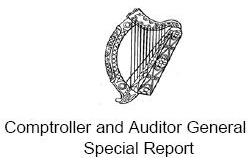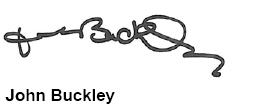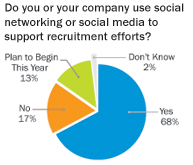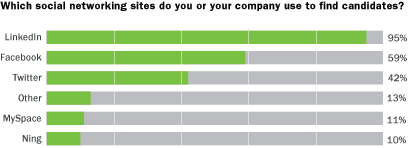Here are just two facts first:
1. Revenues of online job boards are falling
2. Social networks are (still!) gaining popularity
Why are job boards in trouble all of the sudden after being profitable for more than 10 years?
The troubled world economy that hit the recession in the second half of the 2008 and continued well into most of the 2009 (is it over yet???!!!) resulted in the first dip of the volume of the internet traffic. First ever actually. It is the first time since the Internet exists that the volume of the activity on the internet was smaller compared with the same month a year ago. All the iPhones and all kind of internet enabled devices did not help here. There have been far less people working (and surfing in their breaks), and far less people had time to surf during their work.
The combination of the large reduction of the job advertisements (that generate the revenue for the job boards, and also the drop in web site traffic in general – the figures of a job boards in 2009 do not look so rosy!
Social networks are a long term threat to the job boards.
The number of people spending time, and the sheer amount of time people spend on the social networking sites does not really leave much time to search the job boards. Compared to the job boards, the social networking sites are actually extremely boring. There is 0 interaction on the site really. As a job hunter you apply for a job or jobs you like, and what you get back in 99% of the cases is an automated response in the email. The confirmation of the job application. Impersonal and sterile. The social networks on the other side let you publish the content for other users (or anyone on internet) to read and see. Social networks let you say what you think (that your spouse doesn’t!). Social networks encourage you to comment pretty much anything!
You can meet new people. You can catch up with old school mates. You can check the last summer holiday photos of your cousins. You can upload your fancy wedding photos, with all the family in strange dresses in the background! You can grade photos and comment them. You can upload video from your car racing weekend. Your greatest fishing catch.
Social network is like a pub. People are talking. Social network is like a ‘Corso’, the main street boardwalk where you hang out with your friends and their friends. You can also do some business with all this people there if you feel like it. But do not really have to, since you can check how your mates commented the game yesterday. And tell them how YOU think your home club should have played.
After you got used to the way of communication that the social networks or let you by broadcasting YOUR message to the masses, the idea of browsing boring listings of the jobs on the job sites simply isn’t that appealing any more.
Social Recruitment is born simply because people are far more active on the social networks than on job boards. If Twitter wouldn’t have that many visitors and users it would be impossible to hire staff there. But the sheer volume of users on Twitter makes it a platform where you really can hire staff with the most crazy restriction anyone have ever imposed on the recruitment process – communication limited to 140 characters (spaces included!!!). Facebook is probably the platform with the largest number of useless, and distracting applications but the fact that the number of active users is larger than most of the countries in the world – makes it a perfect sourcing application for a large number or positions. LinkedIN is specialising for the recruitment itself – the social network of professionals. Even their Jobs section isn’t visited as much as all the others since it is simply boring. Visitors expect more from the social networks then the boring jobs listings. They want to contribute. They want to read other peoples contribution. They way to confirm their decisions by getting the independent views from other people with similar conclusions.
![]() Resumark brought in a nice new business model in the online recruitment industry. The concept is essentially borrowed from the Google AdWords – Google AdSense model. While Google pays the web site owners to show the Google AdSense on their sites and charges the Google AdWords clients to pay per click for those same adverts Resumark does the same with the CVs. Job hunters upload their CVs and get paid each time someone downloads the CV. Anyone can search the CV database for free, and gets a preview of the CV for free only. If you decide you would like the contact details as well – you pay to Resumark. Resumark in return pays the cut to the owner of the CV.
Resumark brought in a nice new business model in the online recruitment industry. The concept is essentially borrowed from the Google AdWords – Google AdSense model. While Google pays the web site owners to show the Google AdSense on their sites and charges the Google AdWords clients to pay per click for those same adverts Resumark does the same with the CVs. Job hunters upload their CVs and get paid each time someone downloads the CV. Anyone can search the CV database for free, and gets a preview of the CV for free only. If you decide you would like the contact details as well – you pay to Resumark. Resumark in return pays the cut to the owner of the CV.





